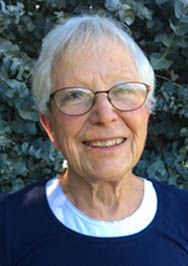Mud
By Polly Chase Boyden
Mud is very nice to feel
All squishy-squash between the toes!
I’d rather wade in wiggly mud
Than smell a yellow rose.
Really, Polly? If Polly were alive today in our town, she would be surrounded by nicety, particularly out in the country and definitely on country roads. In fact, it is so muddy and wet that a yellow rose bush cannot be planted because ground water fills the hole faster than the roots can be buried. Drowning is not good for plants that are breaking out of dormancy.
Much of farming and gardening is on hold because of mud. Fields are saturated and dirt roads a trap for wheels and weight. Between rainstorms I found my grandson, Wilson, stuck between rows of apple trees, with the golf cart mired in mud. A crew of family members pushed him out of the muck and onto more solid ground.
He felt a little bit silly, stuck there, as only a high school sophomore could feel, and I am not sure he felt any better when I told him not to worry – that it would make a good column for me. Assuring him that he wouldn’t be the sole person in my story, he was interested in hearing who else would be sharing column space.
First, it would be his Uncle Joel who, as a junior in high school, got our small tractor stuck behind the barn in a low spot on our farm. It was Sunday morning and the rest of us left him shifting the tractor back and forth as we drove to church.
I’m sure we stopped at Flakey Cream after Mass – we always did – and when we drove onto our farm, around to the barn, we expected to see the tractor parked somewhere and it was – in the bottom of the hole, which was now much bigger, with Joel still gamely endeavoring to get traction.
Needless to report that all manner of board and hay bale was commandeered with no success other than chucking good stuff into a big hole. The father of the family smartly decided to call his brother-in-law across town who owned a bigger tractor, which saved the day and earned a doughnut.
The second adventure involved my daughter Sarah and me when we got the very same golf cart that snared Wilson mired in mud further out in our field. The wheels started to spin and the more we tried to gun the engine the faster the wheels dug in.
It was a new golf cart which was the pride of the head farmer who was, gratefully, teaching at the high school and wouldn’t be home until after 4 o’clock.
We stood there looking at the shiny green golf cart, splattered with mud. (Brown and green are kind of a nice color match, actually, at least Mother Nature thinks so, but Joel was not Mother Nature.)
That afternoon, I learned to drive the tractor. We got some rope and did a very poor job wrapping the rope around the fender of the cart. With Sarah at the steering wheel I put the tractor in forward gear, pulling the cart. The rope slipped and sent the cart tipping. We decided not to have anybody in the cart and repositioned the rope. This time we succeeded. A good hosing off of the cart and a return to its normal parking place settled the farm back to normalcy.
Still, there were the telltale ruts in the field as there are right now. It will be some time before the earth dries out and all the signs of mishaps disappear. As Wilson’s older brother, Lucas, said before he returned to Chico after Christmas break,
“Grandma, the orchard will never be the same – it is filled with craters.”
He was referring to holes where tree stumps were removed earlier in the rainy day – trees that had died from Fire Blight and needed replacing by varieties of fruit trees that don’t get Fire Blight. Like peaches, which get peach leaf curl.
Reminder: when the peach blossom buds are turning pink and swelling, around Valentine’s Day, it’s time to spray with copper (Liqui-cop or Nordox). Wear your muddy boots unless you’re really into that poem.
Renee Kiff weeds and writes at her family farm in Alexander Valley.
51.3
F
Healdsburg
March 12, 2025








